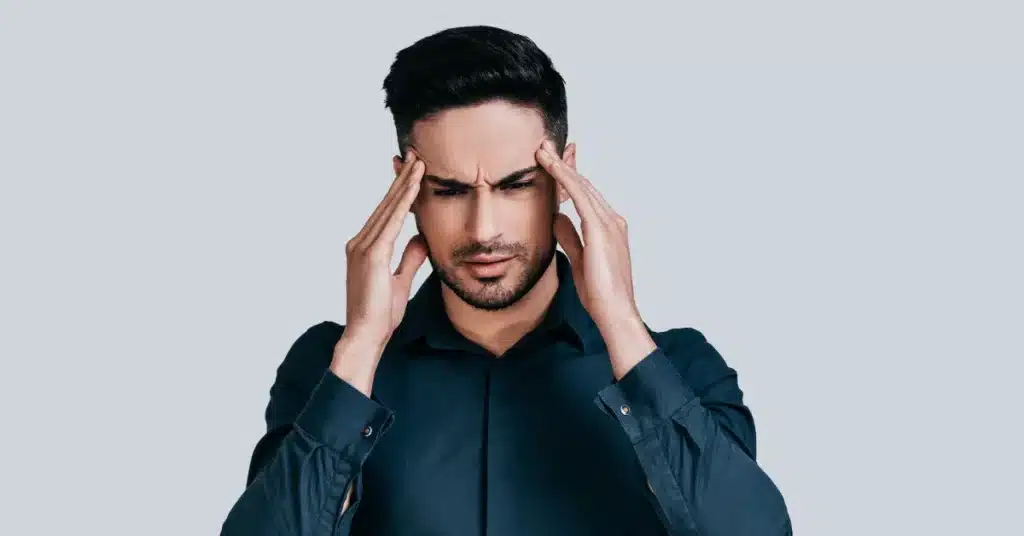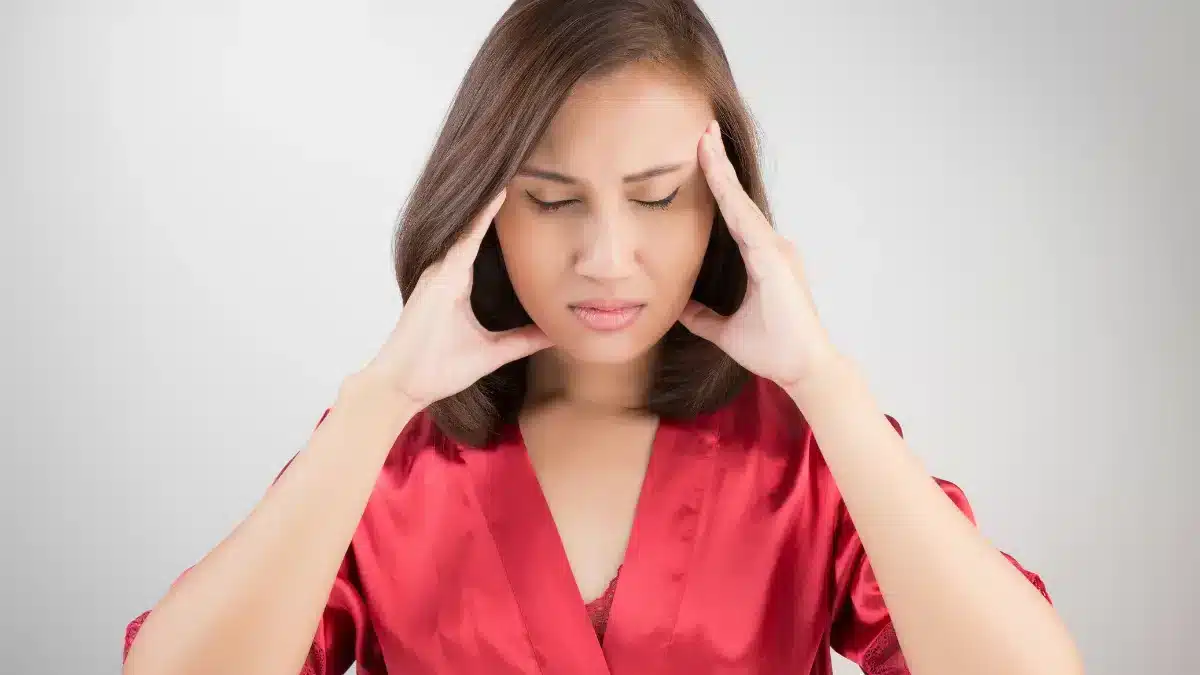In today’s digital age, where screens are an important part of our daily lives, experiencing eye strain headaches is common.
Several health issues can occur due to the prolonged use of digital devices like tablets, smartphones, and computers.
Eye strain and headaches are among the most common ones of those problems.
This article will examine the several aspects of eye strain headaches and discuss the best treatment options.
Define eye strain headache
Sometimes, people might experience a headache due to eye strain. This headache is also known as computer vision sickness or digital eye strain.
People who use digital screens like phones or computers for long periods often get this type of headache.
There are several other symptoms of eye strain apart from headaches as well. These symptoms include eye pain, blurred vision, and tiredness.
Eye pain and photophobia (sensitivity to light) are usually accompanied by each other. Most of the time, an eye strain headache is a dull, aching pain in the temples.
Also, some people might experience itching, heat, or even a burning sensation in their eyes.
Causes of eye strain headaches
Eye strain headaches can occur when you stare at a screen for a long time, blink less, or focus your eyes too much.
Eye strain headaches can worsen due to poor lighting, comfortable design, and too much screen time.
Prolonged screen time
Long periods spent in front of digital screens are one of the major causes of eye strain headaches.
Staring at screens for a long time can make your eyes tired and hurt, which can eventually cause headaches.
This problem is also known as computer vision sickness or digital eye strain.
Incorrect lighting condition
 Source: AndreyPopov_from_Getty_Images
Source: AndreyPopov_from_Getty_ImagesToo little or too much light can also cause eye pain and headaches.
Glaring at your bright screens or focusing under low light can hurt your eyes and cause headaches.
Finding the right mix between screen brightness and proper lighting can help ease headaches caused by eye strain.
Improper screen ergonomics
Poor screen ergonomics, such as incorrect monitor height or improper viewing distances, can strain your eyes and neck, resulting in headaches.
Ensuring your workstation is set up ergonomically can significantly help reduce the risk of eye strain headaches.
Treatment for eye strain headache
Studies have shown that following the 20-20-20 rule is a good way to ease eye strain and tiredness.
After every 20 minutes, you must take a 20-second break and look at something 20 feet away.
Headaches from eye strain can also be avoided by adjusting the brightness of your screen and improving the light quality of your room.
Artificial tear drops can help with Dry Eyes, which are common symptoms of eye strain.
It’s important to consult a doctor before using any medication for eye strain.
Conclusion
In conclusion, as our dependence on digital devices grows, eye strain headaches increase.
Knowing the symptoms, such as headaches, eye pain and blurred vision, is important for timely treatment of the problem.
To treat eye strain headaches, you need to understand the root cause of your problem.
Excessive screen usage, bad lighting, and poor screen ergonomics are some of the main causes of eye strain headaches.
The 20-20-20 strategy is an easy and effective way to ease your eye strain along with adjusting your screen brightness.
Additionally, artificial tear drops help treat Dry Eyes, a common eye strain symptom.
However, consulting a doctor before taking medication is important for proper eye care.
Frequently Asked Questions
What is eye strain headache location?
The pain usually occurs behind or around the eyes, with sensations of soreness or fatigue in the affected area.
Can eye strain cause headaches?
Eye strain can cause pain and headaches, but it’s not often mentioned as a cause of headaches. Headaches caused by eye strain can induce pain that makes day-to-day work difficult.
How to treat eye strain headaches?
Take 20-second breaks every 20 minutes to focus on anything 20 feet away to ease eye strain. Ensure proper room lighting, adjust screen brightness, and ergonomic workspaces. Talk to a doctor before using artificial tear drops for Dry Eyes.
How long do eye strain headaches last?
Most of the time, eye strain is only temporary and goes away in a few hours or days after you adjust your room’s lighting or limit your screen use.
How do I know if my headache is from my eyes?
Eye strain headaches don’t usually make people throw up or get sick. You might also feel pain in the region behind your eyes. You might feel tired or sore in that spot.
When referencing outside resources, GoodrxMedicine always provides full citations. To learn more about the measures we use to maintain the quality of our content, please review our Content Information Policy.











